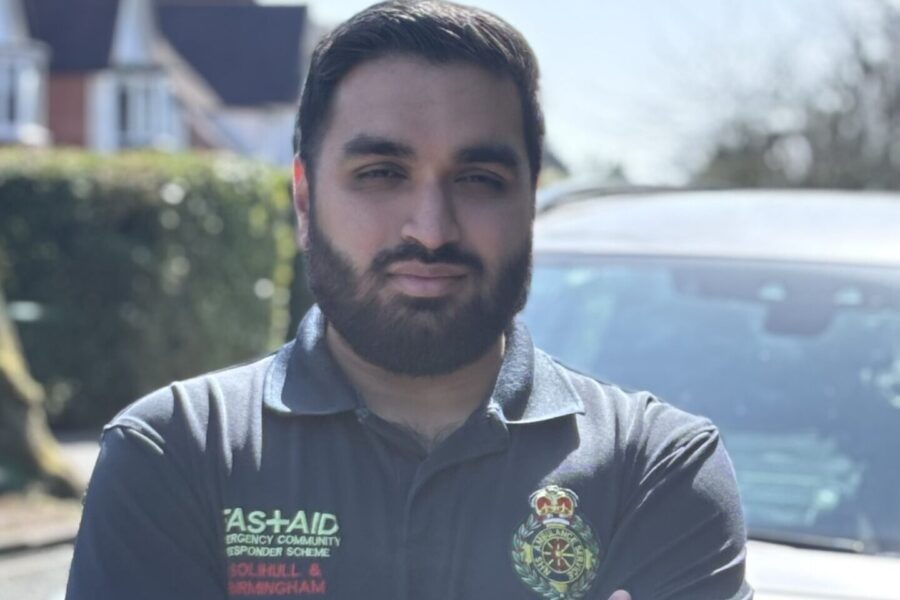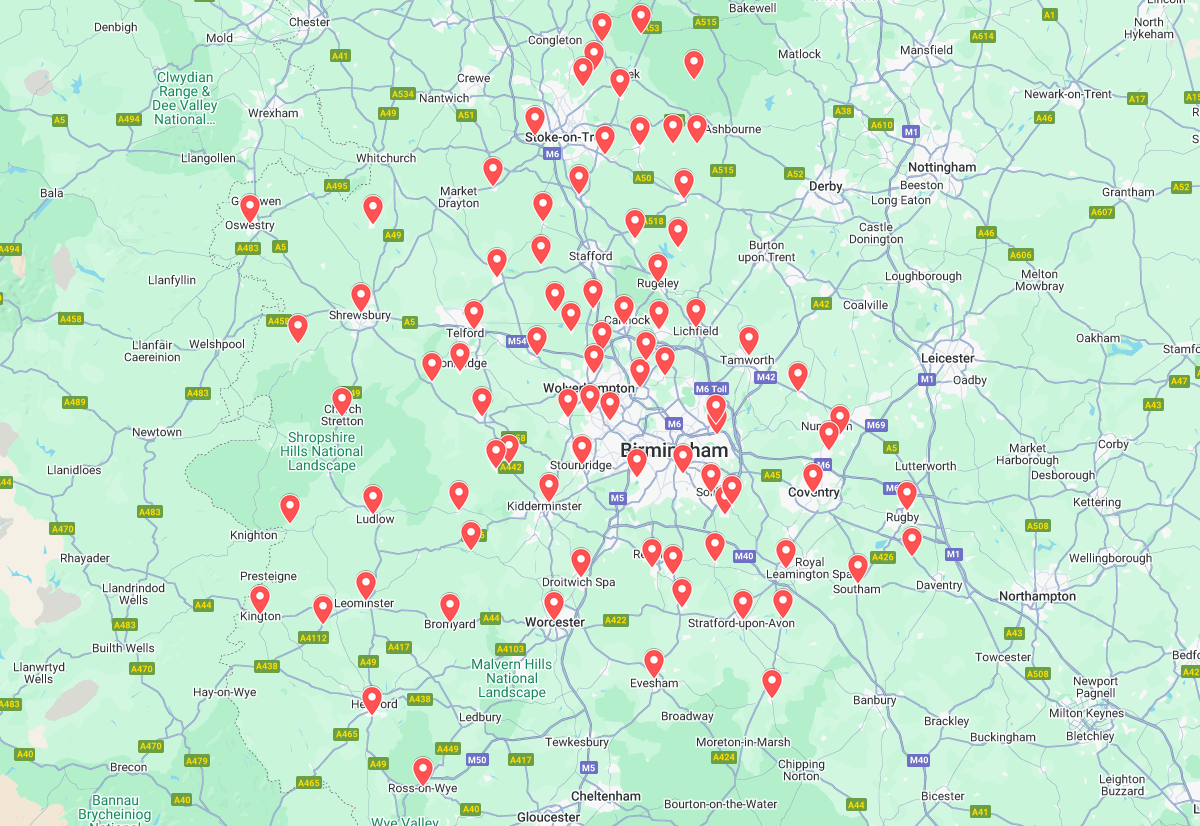
We currently have 500 volunteer Community First Responders operating from 68 schemes within the West Midlands Region. In 2024, our CFRs attended 10,283 emergency 999 calls.
CFRs join local charities called schemes which work in partnership with West Midlands Ambulance Service. These schemes allow CFRs to volunteer using a marked response car (without blue lights) in their local community without needing to travel to their nearest ambulance hub. In addition to responding to 999 calls, they also spend time raising awareness of life saving skills such as CPR and fundraising to cover the cost of running their scheme.
FastAid Community First Responder, Hiran Patel, is a Technical Engineer by day but has been volunteering for four years in Solihull and Birmingham helping patients in his local community. He explains why he became a CFR: “As a child growing up in Birmingham I have been involved with youth groups led by local police officers aimed at steering youths away from crime and focused on team building and community cohesion, as I grew through my teen years I’ve always wanted to give back to the community, how better than by becoming a CFR and meeting people from all walks of life and helping them on what in many cases we attend is the worst day of their life.
As a devout Hindu, giving back selflessly is a big part of our religion. Being a CFR allows me to do this by helping those in need without prejudice.
What type of 999 calls do CFRs respond to?
Every 999 call that we receive is triaged or sorted, to decide what is the most appropriate response to your call. You can find out more about what happens when you call 999. All 999 calls are categorised to ensure patients in the most serious condition receive the fastest response. CFRs are dispatched to the two most urgent categories:
- Category 1 calls – life threatening situations e.g. where a patient is not breathing, they are having a severe allergic reaction, they are having a seizure or significant blood loss
- Category 2 calls – situations that could become life threatening if not dealt with urgently e.g. chest pain, difficulty breathing, strokes or major burns
What are CFRs trained to do?
The training provided by West Midlands Ambulance Service uses the national Level 3 First Responder On Scene (FROS) syllabus and covers everything you will be asked to do when responding to a 999 call including:
- Scene management:
- Safety & triage
- Current legislation, national guidelines, policies & procedures for undertaking casualty assessment and examination
- Communicating with patients & relatives
- Safe moving & handling
- Primary & secondary surveys
- Skeletal stabilisation
- Life support:
- Perform basic life support for adults, children and babies
- Use of oropharyngeal airways and bag valve masks
- Automated external defibrillation
- Post resuscitation procedures
- Medical assessment:
- Pulse and respiratory checks (eg blood pressure, pulse oximetry, temperature)
- Patient positioning
- Recognition of respiratory problems
- Common breathing difficulties
- Basic airway management (eg blocked airways, choking, suction, use of oxygen)
- Recognition and initial care of medical conditions (eg heart attack/angina, diabetes, stroke, epilepsy, unconscious patients, asthma/anaphylaxis)
- Recognition and initial care of extreme temperatures, poisoning, injuries to bones & joints, burns & scalds, bleeding, shock & faints and other trauma related injuries
What is expected of a CFR?
Once qualified, volunteers CFRs will be affiliated with their local scheme and will be expected to:
- Respond for a minimum of 208 hours per year (equivalent of 4 hours per week) whenever is convenient for you – there is no set shift duration or schedule and you can choose to respond solo or with other CFRs
- Teach people in your local community how to perform cardiopulmonary resuscitation (CPR), use a defibrillator and stop severe bleeding
- Help your local scheme fundraise to cover the cost of your uniform, response car and equipment (West Midlands Ambulance Service will cover the cost of all consumables and mileage used when attending 999 calls)
What do CFRs get out of volunteering?
With 500 active CFRs in the West Midlands Region, it’s clear that it’s a hugely rewarding role. Our CFRs join for a number of reasons and from a range of different backgrounds. You become part of a professional, highly skilled and motivated team. You receive practical experience in emergency medicine and in patient care. You build and develop key life skills such as leadership, communication, teamwork and resilience. The most important thing our CFRs get out of volunteering is the sense of making a difference to someone’s life. Helping those in your local community is something to be very proud of. Read testimonials from some of our current CFRs.
How do I become a CFR?
To find out more about the CFR application and training process with West Midlands Ambulance Service.
